#Fernando Llosa
Text
En América Latina escribimos sobre la tierra quemada: Iwasaki
Por Irma Gallo. Desde Guadalajara, Jalisco
Parecería que la violencia es inherente a estas tierras. No solo en cuanto a lo obvio: los feminicidios, la guerra de cárteles, la violencia política, sino también en nuestra literatura.
El título de la mesa que abrió las jornadas de hoy en la V Bienal Mario Vargas Llosa era Literatura y violencia política. Acompañado por los escritores Santiago…
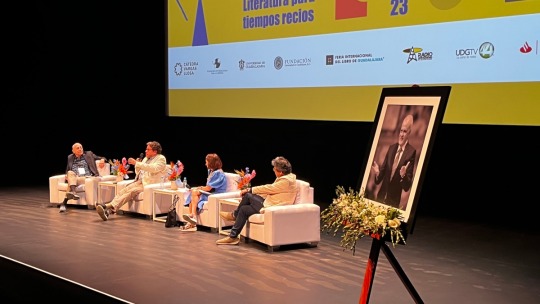
View On WordPress
2 notes
·
View notes
Text
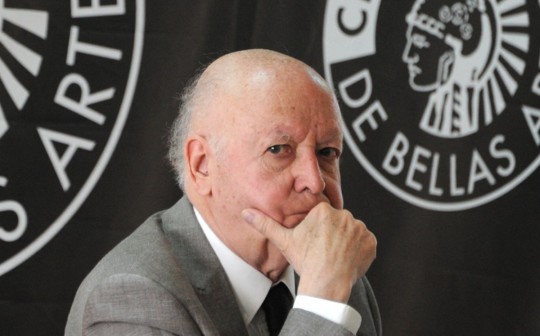
Mis cinco artículos favoritos incluidos en El whisky de los poetas fueron “Complejos frente a la cultura’’, “El país imaginario’’, “La poesía y el cuento’’, “Los clásicos del verano’’ y ‘“El compromiso viejo y los nuevos’’. El libro está interesante: son escritos entretenidos, de temas variados y lo suficientemente breves como para no aburrirse tanto en el caso de que algunos no llamen la atención (aquellos en los que habla de actualidad nacional, por ejemplo, pueden no interesar a un lector extranjero). Edwards fue un buen cronista, y aquí se puede ver bien.
Además de estar leyéndolo, he estado viendo muchas de las entrevistas que dio (creo haber visto la gran mayoría de las que están subidas a YouTube), así que aprovecharé esta ocasión para recomendar las que me parecen más destacables. Para empezar, esta que le hizo el gran Joaquín Soler Serrano en A fondo (Edwards era uno de los pocos escritores a los que entrevistó que aún seguía vivo: ya solo va quedado Vargas Llosa y alguno que otro más) centrada particularmente en Cuba y en Neruda. Otro que recientemente falleció fue el polémico Fernando Sánchez Dragó, quien lo entrevistó en Negro sobre blanco (a Sánchez Dragó se le pueden criticar muchas cosas, pero no se puede negar que fue uno de los mejores entrevistadores que ha tenido España). Por tratar temas políticos de los que no habla en otras entrevistas recomendaría esta, y ya para terminar, esta bien entretenida (que es una de las últimas que es posible encontrar) que le hizo un conocido entrevistador chileno.
2 notes
·
View notes
Text

Escuchá RQI http://stream.zeno.fm/5stpnegy8vzuv
Alocuciones de Javier Milei, Alberto Benegas Lynch (h.), Axel Kaiser, Gloria Álvarez, Juan Ramón Rallo, Antonio Escohotado, Agustín Laje, Mario Vargas Llosa, Nicolás Márquez, Jaime Bayly, Fernando Díaz Villanueva, y muchos más…
Radio QuarAntenA IndEp
Música e ideales libertarios!!
4 notes
·
View notes
Text
Thank you @sflow-er and @cupofteainme for tagging me!
Favourite colour: Red
Currently reading: you caught me in one of the rare moments when I'm not reading anything.
Last song: I blasted S2 soundtrack into my years all afternoon! In loop. My favourite one is "Seize the Power" by Yonaka.
Sweet/spicy/savoury: Spicy
Favourite alcoholic drink: beer and red wine
Currently working on: does it mean fanfiction? In this case, nothing (I'm not a fanfic writer, nor a writer in general)
Traditional or modern: Modern
Favourite writer: oh gosh, there are so many! I'll name a few, in random order: Virginia Woolf, Gabriel Garcia Marquez, André Aciman, Mario Vargas Llosa, Michel Tremblay, Margaret Mazzantini, Fernando Pessoa, Charles Baudelaire, Eugenio Montale, Erich Fried (the last four are poets).
Favourite dessert: I don't have one, I'm not into desserts that much
Favourite rapper: I like rap as a genre but don't have a favourite artist. I like discovering new ones, though, and after joining the fandom and starting studying Swedish I ventured into Swedish rap. I enjoy A36, Jireel, Asme, VC Barre among others.
Favourite sports player: hum, too many, again? My favourite sports are figure ice skating, free-climbing and moutaineering, I could name dozens of athletes that I love from each one. I'll go with two women who made history in mountaineering: Edurne Pasaban (Spain) and Gerlinde Kaltenbrunner (Austria), the first and second women to ever climb all the eight-thousanders (the 14 peaks higher than 8.000mt / 26,520 feet) a decade ago. Edurne was the absolute first, Gerlinde the second but the first to do it without oxygen.
Colour of your bedroom: White walls, white wardrobe, colourful sheets and blankets (red, orange, pink, green, blue, etc. with stripes or flowers or other coloured patterns)
Favourite politician: gonna skip this one
Loyalty or lust: Loyalty, if I have to pick one. But I can't imagine my life without lust.
Pizza or pasta: Pasta
Are you vegan/veggie: my diet is 80% plant-based. I still eat a bit of of eggs, dairy, meat and fish but I'm trying to cut animal food down as much as possible.
Favourite time period: as a period to live in, present time. In fiction, I love movies and shows set in the '50s-'60s because of the aesthetics: fashion, music, interior design, I love everything from those decades.
Love or hate: Love. Love. Love.
Last series watched: I haven't watched anything but Young Royals for the last three weeks...
Classical or rock music: Rock all my life
Fairy or dragon: both
Game of Thrones or Lord of the Rings: ok, here we are, I'm going to be canceled: none. Fantasy is my least favourite genre both in literature and movies.
@randomsmilingpotatoes and @thewestcoastlady have you already been tagged? would you like to play along? No pressure in any case!
5 notes
·
View notes
Text

#ElEscenarioDelMundo
🎭 Teatro Musical: “LA NAVE DE LAS EMOCIONES” 🌎🚀🎯👀
✍️ Idea Original: Stephany Iriarte (psicóloga)
🗯 Argumento: Lucía y Mariano, seres de otro planeta que quedan atrapados en la Tierra por una avería de su nave, siendo la única forma de volver el tener que pasar todo un día viviendo como lo hacen los seres humanos. Por cada emoción que conozcan y comprendan, desbloquean un paso más de regreso a casa. A través de la música y diversión, aprenderemos sobre el autocuidado y amor propio, límites saludables con el entorno, saber decir que "no", tolerancia a la frustración y aceptar el enojo, normalizar la tristeza y el volver a la calma y valorar las pequeñas cosas que nos dan alegría. La puesta en escena se convierte en una interacción constante con el público, donde se interpretan nueve canciones originales, compartidas a chicos y grandes, formando un camino de aprendizaje sobre la vida humana y sus emociones: tristeza, tolerancia a la frustración, alegría, empatía, autocontrol y límites saludables.
👥 Elenco: Mario Mendoza, Fernando Barrs, Silvana Goycochea, Elihu Leyva, Gillary Vela, Carmen Tudela, Marisol Iriarte, Romy Perea, Andrea Laura, Jordan Guzmán, Angeles Sosa y Jorge Camoretti
📢 Dirección: Stephany Iriarte.
▶️ Vídeo Promocional: https://youtu.be/nHf3BxfDBC0

📌 FUNCIONES:
📆 Sábado 08 y 15 y Domingo 09 y 16 de junio
🕔 5:00pm.
🏛 Teatro Auditorio Mario Vargas Llosa de la Biblioteca Nacional (av. De la Poesía 160, San Borja)
🎫 Entrada: S/.40
🖱 Reservas: https://teleticket.com.pe/la-nave-de-las-emociones
📱 WhatsApp:951092433 / 983833837
0 notes
Text


CALIFICACIÓN PERSONAL: 6 / 10
Título Original: Castro
Año: 2009
Duración: 87 min
País: Argentina
Dirección: Alejo Moguillansky
Guion: Alejo Moguillansky
Música: Ulises Conti
Fotografía: Gustavo Biazzi
Reparto: Edgardo Castro, Julia Martínez Rubio, Alberto Suárez, Carla Crespo, Esteban Lamothe, Gerardo Naumann, Rita Carou, Fernando Llosa, Julián Tello, Esteban Bigliardi
Productora: El Pampero Cine, Costa Films, Universidad del Cine
Género: Drama; Mystery
TRAILER:
youtube
0 notes
Text
Ok duuno if i being racist but if you are linked un to someone with a latino but you're born in America and you doesn't know anything about your culture, you can say that you are latino
Now im gonna say this; if you're white and you are linked up to someone that are black automatically you can identify as black?
I'm wanna discuss with anyone to know if I'm having reason or I'm being racist and harmful when im saying this analogy because is big the amount of people that exclaims that they are latinos just for being part of something without knowing what is exactly the culture that they are trying to represent or famous just hanging out with the name of the country saying that they are representing their country, but anything that they made on all their careers was in another countries and not starting in his native country
Out there there's a lot of artist, musicians, actors, writers and others like Frida Kahlo,Diego Rivera, Fernando Botero, Mario Vargas Llosa, Guillermo del Toro, Sebastián Lelio,Bad Bunny, Rosalia, Ozuna, etc; and all are latinos that are latinos (I think Rosalia doesn't enter here cuz she's from Spain) and represent the real talent of a latino.
0 notes
Text
1 note
·
View note
Photo
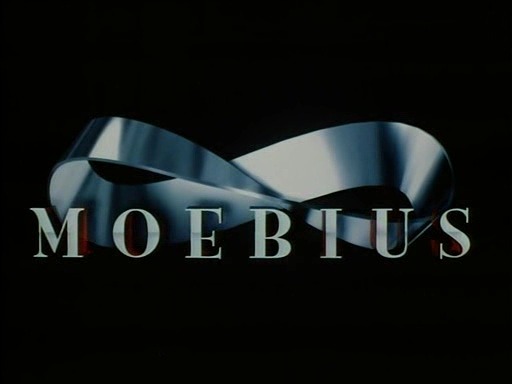
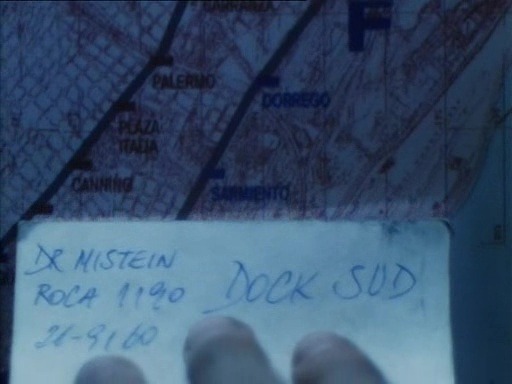
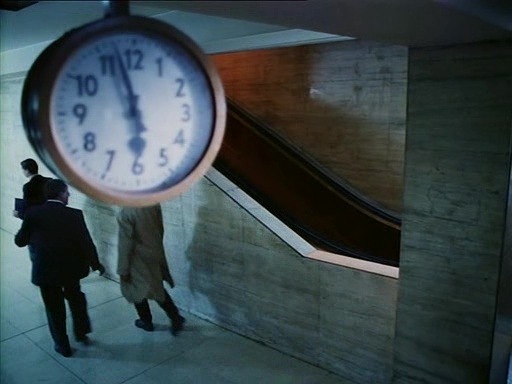
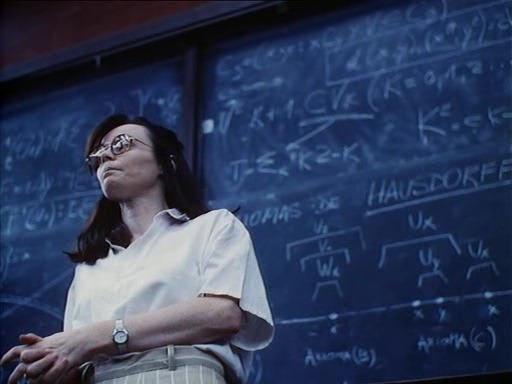
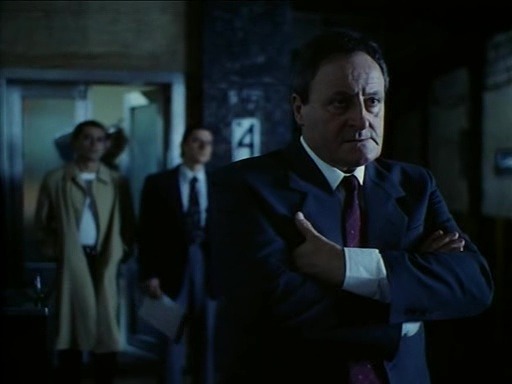
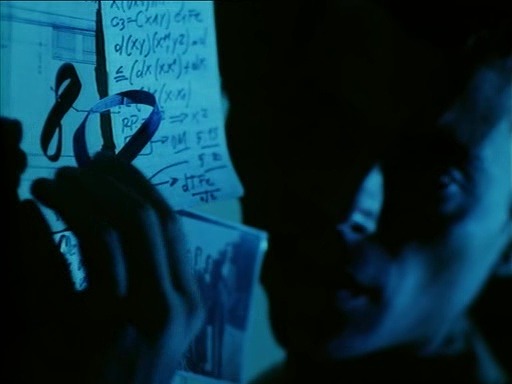
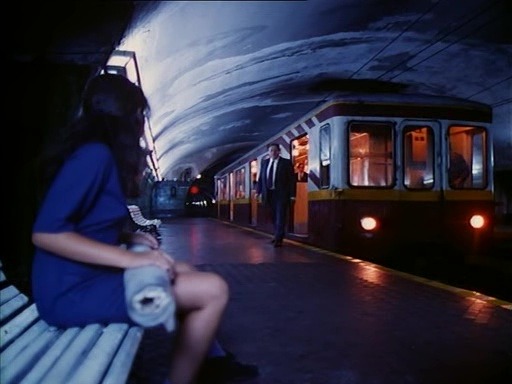
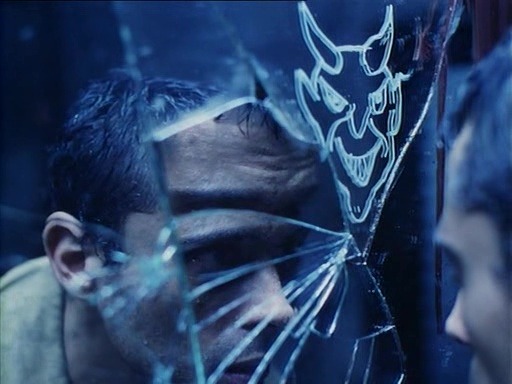
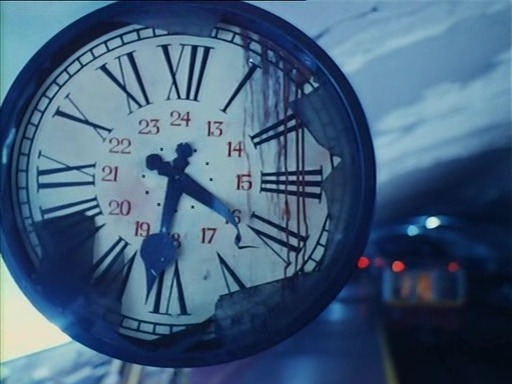

Moebius (1996) Director - Gustavo Mosquera R., Cinematography - Abel Peñalba "It's not difficult to understand why I decided to follow his steps In this no return trip before trying to lose my time trying to explain to a group of fools something they don't wish to understand. Anyhow, the old man was right, we live in a world where nobody listens anymore."
#scenesandscreens#moebius#Gustavo Mosquera R.#Guillermo Angelelli#Argentina#Roberto Carnaghi#Annabella Levy#Jorge Petraglia#Miguel Ángel Paludi#Fernando Llosa#Martín Adjemián#Daniel Di Biase#Jean Pierre Reguerraz#Martín Pavlovsky#Felipe Méndez#Fernando Cia#Osvaldo Santoro#Horacio Roca#Nora Zinski#Sammy Lerner#Rodolfo Franghi#Samuel Lankes#Ricardo Merkin#Aldo Niebur#Alejandro Viola#Javier García#Jorge Noya
33 notes
·
View notes
Text
Classic books of all South America
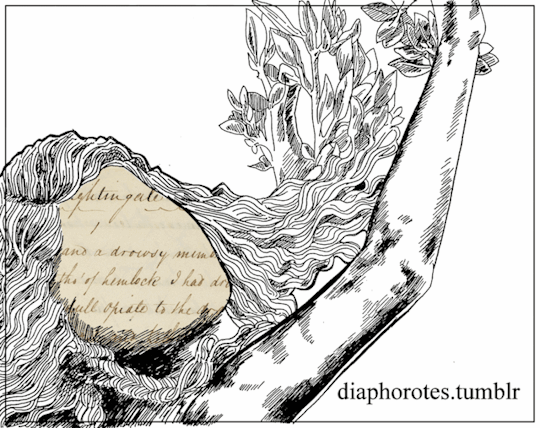
Argentina
The Invention of Morel - Adolfo Bioy Casares
The Seven Madmen - Roberto Arlt
Zama - Antonio Di Benedetto
Hopscotch - Julio Cortázar
Scarecrow & Other Anomalies - Oliverio Girondo
Idle Days in Patagonia - William Henry Hudson
Cris & Cris - Maria Felicitas Jaime
Tropical Night Falling - Manuel Puig
How I Became a Nun - César Aira
The Tango Singer - Tomás Eloy Martínez
Los Pasajeros del Jardin - Silvina Bullrich
Friends of Mine - Angela Pradelli
Traveller of the Century - Andrés Neuman
Bolívia
Raza de Bronce - Alcides Arguedes
Turing’s Delirium - Edmundo Paz Soldán
Juan de la Rosa - Nataniel Aguirre
Let me speak! - Domitila Barrios de Chungara
Los Deshabitados - Marcelo Quiroga Santa Cruz
Brazil
I’ve alredy done a full post about Brazilian Classics. You can check out here!
Chile
The House of Spirits - Isabel Allende
Curfew - José Donoso
Seeing Red - Lina Meruane
My Tender Matador - Pedro Lambel
The Sevage Detectives - Roberto Bolaño
The Postman - Antonio Skarmeta
The Shrouded Woman - María Luisa Bombal
Ways of Going Home - Alejandro Zambra
The Absent Sea - Carlos Franz
The Man Who Read Love Stories - Luis Sepulveda
Colombia
Dark Stars - Arnoldo Palacios
The Armies/New Directions - Evelio Rosero
The Vortex - José Eustácio Rivera
One Hundred Years of Solitude - Gabriel Garcia Marquez
Blue Days - Fernando Vallejo
En Diciembre Llegan las Brisas - Marvel Moreno
Catalina - Elisa Mujica
In the Beginning Was the Sea - Tomás González
Love in the Time of Cholera - Gabriel Garcia Marquez
News of a Kidnapping - Gabriel Garcia Marquez
Equador
Polvo y Ceniza - Eliécer Cárdenas
Huasipungo - Jorge Icaza
Las cruces sobre el agua - Joaquín Gallegos Lara
Los que se van - Demetrio Aguilera Malta, Joaquín Gallegos Lara and Enrique Gil Gilbert
Los Sangurimas - José de la Cuadra
Cumanda or A Drama Between Savages - Juan León Mera
Between Marx and a Naked Woman - Jorge Enrique Adoum
Juyungo - Adalberto Ortiz
Un hombre muerto a puntapiés - Pablo Palacio
Guiana
The Shadow Bride - Roy Heath
Guianese Poetry: Covering the Hundred Years' Period, 1831-1931 - Many authors
Poesias escogidas - Martin Carter
Selected Poems of Egbert Martin
Paraguai
I, the Supreme - Augusto Roa Bastos
Son of Man - Augusto Roa Bastos
Poetry from Rubén Bareiro Saguier
Dias roturados: poemas de la guerra civil - Elvio Romero
El sol bajo las raíces - Elvio Romero
Hombres, Mujeres y Fantoches - Gabriel Casaccia
Los Exiliados - Gabriel Casaccia
Poetic Anthology - Josefina Plá
The flame and sand - Josefina Plá
Peru
Peruvian Traditions - Ricardo Palma
El Sexto - José Maria Arguedas
The Time of the Hero - Mario Vargas Llosa
Aunt Julia and the Scriptwriter - Mario Vargas Llosa
The War of the End of the World - Mario Vargas Llosa
The Feast of the Goat - Mario Vargas Llosa
The Bad Girl - Mario Vargas Llosa
A World for Julius - Alfredo Bryce Echenique
La palabra del mudo - Julio Ramón Ribeyro
Broad and Alien Is the World - Ciro Alegria
Los heraldos negros - César Vallejo
El Mundo Es Ancho Y Ajeno - Ciro Alegría
Seven Interpretive Essays on Peruvian Reality - José Carlos Mariátegui La Chira
Suriname
The Queen of Paramaribo - Clark Bertram Accord
We Slaves of Suriname - Anton de Kom
Two evenings in Saramaka - Richard Price
Daring life - Astrid Heligonda Roemer
Uruguay
Open Veins of Latin America - Eduardo Galeano
The Ship of Fools - Cristina Peri Rossi
La vida breve - Juan Carlos Onetti
La Tregua - Mario Benedetti
Jungle Tales - Horacio Silvestre Quiroga Forteza
The Book of Embraces - Eduardo Galeano
Body Snatcher - Juan Carlos Onetti
Aventuras de los jóvenes dioses - Eduardo Galeano
Ariel - José Enrique Rodó
Pedro y al Capitán - Mario Benedetti
The Naked Woman - Armonía Somers
Venezuela
Dead Houses - Miguel Otero Silva
Las lanzas coloradas - Arturo Uslar Pietri
Cuando quiero llorar no lloro - Miguel Otero Silva
Canaima - Rómulo Gallegos
Memories of Altagracia - Salvador Garmendia
Cantaclaro - Rómulo Gallegos
Boves, El Urogallo - Francisco Herrera Luque
Cuentos grotescos - José Rafael Pocaterra
#latin america#latin america academia#classic books#books#light academia#romantic academia#dark academia#chaotic academia#adhd academia#dark academia aesthetic#bookblr#studyblr brazil#bookworm#book nerd#bookaholic#reading
362 notes
·
View notes
Link
Who is behind the coup in Peru?
A series of gestures and close ties with the United States and the CIA itself set off the alarms for the coup in a Peru mobilized after the elections. By José Carlos Llerena Robles and Vijay Prashad | Globetrotter -
By all estimates, Pedro Castillo won the second round of the presidential elections, but his opponent refuses to acknowledge it and many fear a coup, as tensions could escalate with the support of Peru's loyal right and the newly appointed ambassador of Peru. USA.
Pedro Castillo, from the Peru Libre party, has already begun to receive congratulations from around the world. There is no doubt that he won the presidential elections on June 6. The Peruvian Electoral Authority (ONPE) released the final results: Castillo obtained 50.127% of the votes (8.84 million votes), while Keiko Fujimori, his opponent in the second round for the Fuerza Popular party, obtained the 49.893% (8.78 million votes). wishes). This with 100% of the votes counted. Clearly, Fujimori lost the election.
However, Fujimori refused to admit defeat. He even hired the best jurists in Peru to challenge the election results. A few hours after the electoral counts were released, Fujimori's team filed 134 challenges within the allotted time; another 811 are in progress.
The Fujimori team brought these lawyers together before the vote, anticipating the possibility of a Castillo victory and the need to tie him up in court. The army of white-collar lawyers has launched a racist war strategy; Their entire game has been to invalidate the votes that constitute the core of Castillo's support base, that is, the indigenous communities of Peru.
The United States has appointed a new ambassador to the country. Her name is Lisa Kenna, a former adviser to United States Secretary of State Mike Pompeo, a nine-year veteran of the Central Intelligence Agency (CIA) and an employee of the United States Secretary of State in Iraq. Just before the elections, Ambassador Kenna posted a video in which she spoke of the close ties between the United States and Peru and the need for a peaceful transition from one president to another. The "presidential transition is an example for the entire region," she declared, anticipating a serious challenge. If anyone knows of interference in the electoral process in Latin America, it is the United States.
More collaborators close to the US
There are also key members within Keiko Fujimori's team, such as Fernando Rospigliosi. Former Interior Minister to President Alejandro Toledo, Rospigliosi joined Fujimori's team for precisely this kind of dispute (for years he had been highly critical of the crimes committed by Alberto Fujimori, who is now serving a prison sentence). Collaboration with the US embassy is in the Rospigliosi curriculum.
In 2005, the former left-wing military Ollanta Humala participated in the presidential race. All the evidence indicates that Humala, who had attempted a coup against Keiko Fujimori's father in 2000, had massive support. Some even thought that Humala would follow both Hugo Chávez and Evo Morales, leading Peru to the left. At that time, Rospigliosi went to the US embassy to seek support and prevent Humala's victory in 2006.
On November 18, 2005, Rospigliosi and former Director of National Defense Rubén Vargas went to the embassy for lunch. They expressed their "concern about the prospects of the ultranationalist Ollanta Humala consolidating itself as a political force to be taken into account." Both Rospigliosi and Vargas worked for an NGO called Human and Social Capital (CHS), which had been hired by the Narcotics Affairs and Law Enforcement Section (NAS) of the United States government. Both Rospigliosi and Vargas asked the US embassy to urge their communications contractor, the Nexum company, to "monitor the coverage of Humala and promote anti-human news and commentary in the coca growing regions." They wanted the US embassy to use its considerable resources to undermine it. These are dirty old-fashioned tricks.
The United States was concerned about Humala, his statements against the US military presence in Peru, and his ties to Hugo Chávez. What Rospigliosi and Vargas told the US embassy they liked. Humala lost the 2006 elections. He would win in 2011, beating Keiko Fujimori; But in 2011 he had already established himself as a candidate for the neoliberals, someone the United States considered harmless and useful. On May 19, 2011, Humala signed a text that linked him to the neoliberal agenda ("Commitment in Defense of Democracy"). At the meeting he obtained the blessing of the right-wing Peruvian godfather, the novelis Mario Vargas Llosa.
Vargas Llosa is a key figure here, using the prestige of his 2010 Nobel Prize for Literature to back him up. When it became known that Pedro Castillo had won rural Peru, Vargas Llosa looked down on rural voters; warned that Peru would become Venezuela and that it would be a catastrophe for the country. Submerged in the bile of racism, Vargas Llosa joined other far-right intellectuals in belittling the Peruvian working class and peasantry, hoping that such comments would give sufficient coverage to the coup process underway within the ONPE.on alert
Everything seems to be prepared: the US ambassador with CIA credentials, a dirty tricks man with a habit of going to the embassy for help and with a history of asking the US to defame the left, an elderly man with an allergy to his own people, and a candidate whose father was supported by the oligarchy when he self-coupled in 1992.Pedro Castillo continues to take care of the streets. The crowds gather. They don't want their elections stolen. But there is fear in Peru. Darker forces gather. Will the people be able to defeat them?
Rebeca Avila Journalist and translator at Revista Opera. Master's student in Latin American Social Studies at the University of Buenos Aires, researches the participation of Brazil and Cuba in the national liberation wars of Angola, Guinea-Bissau and Mozambique during the Cold War.
#Peru elections 2021#Peru againt elections stolen#Vargas Llosa looked down on peruvian rural voters#mario vargas llosa#Peru struggle against corruption#mafía fujimori family#fujimori never again#mario vargas llosa & fujimorism#peru#indigenous communities of Peru
11 notes
·
View notes
Text
Bitácora de lectura
2021
Lunes 22 de marzo: retomo mi bitácora de lectura.
2014
Lunes 29 de diciembre: leí 2 Samuel.
Viernes 19 de diciembre: leí 1 Samuel.
Lunes 1 de diciembre: leí Rut.
Jueves 27 de noviembre: leí Jueces.
Lunes 17 de noviembre: leí Ester. Viernes 14 de noviembre: leí Nehemías.
Lunes 10 de noviembre: leí Josué.
Sábado 1 de noviembre: leí Daniel y las Cartas a Timoteo.
Sábado 25 de octubre: leí Apocalipsis.
Jueves 16 de octubre: leí Hechos.
Domingo 12 de octubre: leí Proverbios.
Sábado 4 de octubre: leí Mateo.
Viernes 12 de septiembre: leí Deuteronomio.
Jueves 21 de agosto: leí Números.
Lunes 11 agosto: leí Levítico.
Lunes 28 de julio: leí Éxodo.
Sábado 12 de julio: leí Génesis.
Viernes 27 de junio: leí Zacarías y Malaquías.
Jueves 26 de junio: leí Hageo.
Miércoles 18 de junio: leí Sofonías.
Lunes 16 de junio: leí Nahúm y Habacuc.
Jueves 12 de junio: leí Jonás y Miqueas.
Miércoles 11 de junio: leí Abdías.
Martes 10 de junio: leí Amós.
Viernes 6 de junio: leí Joel.
Martes 3 de junio: leí Oseas.
Viernes 30 de mayo: leí la antología Poesía romántica hispanoamericana.
2013
2 de noviembre: leí Kitchen, de Banana Yoshimoto.
12 de octubre: leí Crónicas marcianas, de Ray Bradbury.
15 de junio: leí Antología de cuentos canadienses contemporáneos.
23 de mayo: leí Cuentos de amor, locura y muerte, de Horacio Quiroga.
15 de mayo: leí, de John Fante, Pregúntale al polvo.
06 de mayo: leí, de Alberto Ruy Sánchez, Decir es desear.
04 de mayo: leí La casa de los espíritus, de Isabel Allende.
24 de abril: leí El profeta, de Gibrán Jalil Gibrán.
1 de abril: leí Poemas de Paul Verlaine, con ilustraciones de Louis Joos.
11 de febrero: leí La naranja mecánica, de Anthony Burgess.
23 de febrero: leí Elogio de la locura, de Erasmo de Rotterdam.
2012
05 de octubre: leí Hojas de hierba, de Walt Whitman.
27 de septiembre: leí La Revolución Interrumpida, de Adolfo Gilly.
16 de septiembre: leí el Popol Vuh: las antiguas historias del Quiché.
09 de septiembre: leí Erotismo en la mitología, de César Torre.
07 de septiembre: leí Juan Salvador Gaviota, de Richard Bach.
05 de septiembre: leí, de José Rubén Romero, La vida inútil de Pito Pérez.
28 de agosto: leí Doce cuentos peregrinos, de Gabriel García Márquez.
21 de agosto: leí, de Elena Garro, Inés.
17 de agosto: leí, de Mario Vargas Llosa, Elogio de la madrastra.
11 de agosto: leí 120 días de Sodoma, del Marqués de Sade.
06 de agosto: leí Príncipe y mendigo, de Mark Twain.
-Leí Albina y los hombres-perro, de Alejandro Jodorowsky.
-Leí, de Wayne Dyer, Tus zonas erróneas.
-Leí Manual del perfecto ateo, de Rius.
2011
20 de febrero: leí “Competencias genéricas que expresan el perfil del egresado de la educación media superior”.
17 de febrero: leí también el acuerdo 447, del 29 de octubre de 2008.
16 de febrero: leí el acuerdo 444 de la Secretaría de Educación Pública, en el Diario Oficial del 21 de octubre de 2008.
7 de febrero: leí El banquero anarquista, también de Pessoa.
2 de febrero: leí Antología poética, de Fernando Pessoa.
31 de enero: leí Antología poética, de Alfonsina Storni.
26 de enero: leí Los hijos de la ira, de Dámaso Alonso.
22 de enero: leí Dulces momentos frustrados, de Samuel Acosta Aroche.
20 de enero: leí Gotán, de Juan Gelman.
17 de enero: leí las Fabulas de Samaniego.
15 de enero: leí Los niños de la guerra, de Josefina R. Aldeoa, así como poemas de Miguel Hernández, Machado, Alberti, Garfias y Cernuda.
09 de enero de 2011: leí Muerte sin fin, de José Gorostiza.
07 de enero de 2011: leí El gato y el ratón, de Günter Grass.
03 de enero de 2011: leí Retrato del artista adolescente, de James Joyce.
2010
06 de noviembre: leí el libro Historias de Wagner.
25 de octubre: la enfermedad me ha acercado a Dios. Dejé para otro tiempo mi lectura de la novela Por el camino de Swann, de Marcel Proust.
15 de septiembre: leí Ojerosa y pintada, de Agustín Yáñez.
25 de agosto: leí, del PNUD Argentina, “Cómo ven los latinoamericanos a su democracia”, en La democracia en America Latina. Hacia una democracia de ciudadanas y ciudadanos.
20 de agosto: leí “La integración al ALCA, el caso del Grupo de los Tres”, de Esperanza Martínez Ortiz.
30 de julio: leí la resolución de la OEA “Cooperación para la seguridad en el Hemisferio” (5 de junio de 2000).
24 de julio: leí Filosofía, de Luz del Carmen Méndez González.
18 de junio: leí Gestarescala, de Philip K. Dick.
13 de junio: leí “Los derechos humanos en América Latina. El caso de El Salvador”, del Mtro. Ignacio Medina.
07 de junio: leí “Reproducción de la fuerza de trabajo en América Latina: algunas hipótesis”, y “Degradación de las condiciones de vida en las ciudades latinoamericanas”, en el libro Las ciudades latinoamericanas en la crisis. Problemas y desafíos.
03 de junio: leí El alienista, de Caleb Carr.
02 de junio: leí “La ciudad, archivo de la historia” y “La ciudad antigua”, en Breve historia del urbanismo, de Fernando Chueca Goitia.
28 de mayo: leí “Migración y educación”, de Luis G. Benavides Ilizaliturri.
25 de mayo: leí “Desde la distancia. Migración y comunicación en red”, de Miriam Cárdenas Torres. También leí “La migración de mexicanos a Estados Unidos: importante proceso de creación cultural y de construcción de identidades”, de Mariángela Rodríguez.
22 de mayo: leí “Contribuciones en torno a una visión epistémico-poética desde una nuestra América”, de Ricardo Romo Torres.
19 de mayo: leí “La necesidad de un análisis social de la calidad educativa en las instituciones de educación superior”, de César Correa Arias y Gerardo Bernache Pérez.
12 de mayo: leí “La globalización indeterminada. Por los caminos de Davos, La Realidad y Porto Alegre”, de Jorge Ceja Martínez, en La globalización en América Latina a la luz del nuevo milenio. También leí del mismo autor “Propuestas para la construcción de otro mundo: el caso del V Foro Social Mundial”, en Portadores de utopías. Actores y resistencias en la globalización.
10 de mayo: leí “El movimiento social altermundista. La nueva praxis de la acción política”, de Tania Sánchez Garrido.
05 de mayo: leí “El príncipe, el ciudadano y el mercader. ONG´s en México”, de Anna Pi I Murugó y Rafael Grasa; también de este último autor: “Sociedad civil y estado en la globalización”.
29 de abril: leí El mundo de Sofía, de Jostein Gaarder.
28 de abril: leí “Las políticas públicas: productos del sistema político”, de Omar García Palacios.
27 de abril: leí “Otra América Latina para los niños y adolescentes” en Niños y adolescentes creciendo en contextos de pobreza, marginalidad y violencia en América Latina, de Irene Rizzini, María Elena Zamora y Ricardo Fletes Corona.
24 de abril: leí “Itinerario de los saberes feministas entre dos milenios” de Virginia Vargas, en Jerarquías en jaque, Estudios de género en el área andina.
21 de abril: leí “Espacios e instrumentos de participación ciudadana para las políticas sociales del ámbito local” en Participación ciudadana y políticas sociales en el ámbito local, de Alicia Ziccardi.
16 de abril: leí “Separar las palabras de las cosas” en La idea de América Latina, de Walter D. Mignolo, y otro texto de Sergio Marras en América Latina, Marca registrada.
18 de marzo: leí, de Juan Gelman, En el hoy y mañana y ayer, Antología personal.
15 de marzo: leí Generalidades históricas sobre la fundación y los primeros años de Guadalajara, de Jaime Olveda y José María Muriá.
13 de marzo: leí La casa junto al río, de Elena Garro.
10 de marzo: leí Fabulas de Tomás de Iriarte, además de Herencias, de Berónica Palacios Rojas.
08 de marzo: leí Relato de un náufrago, de Gabriel García Márquez.
02 de marzo: leí, de Milan Kundera, El libro de los amores ridículos.
24 de febrero: leí Éxodo.
15 de febrero: leí, de Erwin W. Lutzer, Cómo decir no a los hábitos pecaminosos.
05 de febrero: leí La Piedra del Sol, de Eduardo Matos Moctezuma.
26 de enero: leí Y Matarazo no llamó…, de Elena Garro.
18 de enero: leí Industrias y andanzas de Alfanhuí, de Rafael Sánchez Ferlosio.
17 de enero: el Espíritu de Dios, como una fuerte corriente eléctrica, paralizó mis manos.
05 de enero: leí El principito, de Antoine de Saint-Exupéry.
04 de enero: leí Génesis.
2009
28 de diciembre: leí Sakuntala, de Kalidasa.
25 de diciembre: leí La metamorfosis, de Franz Kafka.
22 de diciembre: leí El anticristo, de Federico Nietzche.
18 de diciembre: leí, de Jung Kweon Tae, Antología general de la poesía coreana.
15 de diciembre: leí Antología personal, de Augusto Monterroso.
14 de diciembre: leí, de Rabindranath Tagore, La luna nueva, El jardinero y El cartero del rey.
08 de diciembre: leí Carta al padre, de Franz Kafka.
05 de diciembre: leí Homo videns, La sociedad teledirigida, de Giovanni Sartori.
28 de noviembre: leí la antología Cinco mujeres locas, Cuentos góticos de la literatura norteamericana.
16 de noviembre: leí, de Patrick Süskind, La paloma.
11 de noviembre: leí “El perseguidor”, de Julio Cortázar.
06 de noviembre: leí, de James Joyce, Relatos (“Arabia”, “Una nubecilla” y “Duplicados”).
02 de noviembre: leí la antología Cuentos clásicos juveniles.
30 de septiembre: leí Cartas a un joven poeta, de Rainer María Rilke.
28 de septiembre: leí Estaciones, de Adriana Díaz Enciso.
24 de septiembre: leí la antología poética Voces de un corazón, de Martha Eugenia Martín del Campo.
22 de septiembre: leí, de Agustín Yáñez, Flor de juegos antiguos.
16 de septiembre: leí La feria, de Juan José Arreola.
12 de septiembre: leí La Guerra del Mixtón, de M. Claudio Jiménez Vizcarra.
11 de septiembre: leí, de Miguel Unamuno, Niebla: “…esta chiquilla es un pequeño erizo”.
02 de septiembre: leí poemas de Paul Valery.
28 de agosto: leí Nostalgia del absoluto, de George Steiner.
21 de agosto: leí, de Lovecraft, Las montañas de la locura.
01 de agosto: leí La interpretación grafológica, de Carlos Muñoz Espinalt.
29 de julio: leí Historia de la crítica literaria, de David Viñas Piquer.
28 de julio: mi cabeza es un colador roto. Lo esencial es humo y no martillo o bilingüismo.
25 de julio: leí, de Luis Palés Matos, Tuntún de pasa y grifería.
16 de julio: leí los capítulos referentes a la novela (de pre y posguerra) en la Historia de la literatura española, El siglo XX, de Gerarld G. Brown.
03 de julio: leí “Pasando y pasando…” y “Manifiestos”, en Poética y estética creacionistas, de Vicente Huidobro.
26 de junio: leí cuentos de Giovanni Papini.
25 de junio: leí poemas de Fernando Pessoa.
24 de junio: leí “La carta de Lord Chandos” de Hofmannsthal, y algunos cuentos de Kafka.
19 de junio: leí Historia de la literatura jalisciense en el siglo XIX, de Magdalena González Casillas.
12 de junio: leí La Taberna, de Émile Zola.
09 de junio: leí, de Honoré de Balzac, La piel de zapa.
27 de mayo: leí “Los muertos” de James Joyce.
26 de mayo: leí algunos poemas de Alcoholes y Caligramas, de Guillaume Apollinaire.
25 de mayo: leí Tierra baldía y el poema “Burnt Norton” en Cuatro cuartetos, de Thomas S. Eliot.
24 de mayo: leí poemas de Aragon, Mallarmé y Baudelaire.
23 de mayo: leí algunos poemas de Rimbaud, Rilke y Cummings. También textos breves: “La cruzada de los niños” de Marcel Schwob; “El mito de Sísifo” y “Entre sí y no” de Albert Camus.
22 de mayo: leí Historia de dos ciudades, de Dickens.
21 de mayo: leí “Plegaria sobre la Acrópolis”, de Ernest Renan.
15 de mayo: leí, de Charles Dickens, Canción de navidad.
14 de mayo: leí Los miserables, de Victor Hugo.
08 de mayo: leí La hija del capitán, de Alexandr Pushkin.
06 de mayo: leí Werther, también de Goethe.
04 de mayo: leí Fausto, de Goethe.
28 de abril: leí, también de Poe, Las aventuras de Arthur Gordon Pym.
25 de abril: leí Narraciones extraordinarias, de Edgar Allan Poe.
19 de abril: leí Ivanhoe, de Walter Scott.
09 de abril: leí, de Alejandro Manzoni, Los novios.
7 notes
·
View notes
Text
Creo que no existe la novela total. Pero me parece magnífico el escritor que dice: voy a lograr la novela total. Eso me parece admirable. El trabajo de un Lezama Lima, de Cortázar, de Vargas Llosa, estuvo muy cerca; el de Fernando del Paso, o el del mismo Donoso con El obsceno pájaro... y luego con Casa de campo. Con esta última intenta cubrir todo un destino trágico de Latinoamérica. En él es clave esa experiencia.
Roberto Bolaño, Entrevista
Relecturas
#literatura#citas en español#cita#novela#frases en español#frases#poesía#citas#fragmento#texto#textos#notas#entrevista#roberto bolaño
13 notes
·
View notes
Text
The Books I Read in 2015
En la orilla, por Rafael Chirbes (2013)
El príncipe, por Nicolás Maquiavelo (1532) [tr. Miguel Ángel Granada, 2011]
Siglo XXI. Los nuevos nombres del cuento español actual, por Gemma Pellicer y Fernando Valls [eds.] (2010)
Meditaciones sobre los Evangelios. Mateo, por J.C. Ryle (1856) [tr. Pedro Escutia, 2001]
La historia interminable, por Michael Ende (1979) [tr. Susana Constante, 2008]
Manifiesto comunista, por Karl Marx y Friedrich Engels (1848) [tr. Pedro Ribas, 2011]
L’univers, els déus, els homes, per Jean-Pierre Vernant (1999) [tr. Armand Carabén, 2010]
Lo que me hubiera gustado saber... ¡antes de casarme!, por Gary Chapman (2010) [tr. Beatriz Fernández, 2011]
Benni no habla, por Peter Steinbach (1985) [tr. Mercedes Castro, 1996]
L’illa dels 5 fars. Les claus de la comunicació, per Ferran Ramon-Cortés (2012)
Constitución española (1978) [ed. Luis López Guerra, 2012]
El lobo estepario, por Hermann Hesse (1927) [tr. Manuel Manzanares, 2014]
La civilización del espectáculo, por Mario Vargas Llosa (2012)
Pyongyang, por Guy Delise (2003)
‘The Call of the Wild’ and Selected Stories, by Jack London (1910 -c.)
La música del silencio, por Patrick Rothfuss (2014) [tr. Gemma Rovira, 2014]
Prometeo: mito y tragedia, por Carlos García Gual (1995)
La Revolución Norteamericana, por Gordon S. Wood (2002) [tr. Isabel Merino, 2005]
El Santo Evangelio según San Marcos (v. Reina-Valera, 1960)
¿Qué es la Historia?, por Edward H. Carr (1961) [tr. Joaquín Romero Maura y Horacio Vázquez Rial, 2003]
Los paraísos artificiales, por Charles Baudelaire (1860) [tr. Mariano Antolín Rato, 2011]
Todo es posible mediante la oración. La llave que abre puertas, por Charles L. Allen (1960) [tr. Nilda Sassaroli, 2009]
La formación de América del Norte. Desde los tiempos primitivos hasta 1763, por Isaac Asimov (1973) [tr. Néstor A. Míguez, 2012]
Vida líquida, por Zygmunt Bauman (2005) [tr. Albino Santos Mosquera, 2013]
The Wise Man’s Fear [The Kingkiller Chronicle, #2], by Patrick Rothfuss (2011)
Los retos de la educación en la modernidad líquida, por Zygmunt Bauman (2005) [tr. Violeta Núñez, 2008]
Prehistoric Men, by Robert J. Braidwood (1967)
Sobre el descrédito de la literatura y otros avisos humanistas, por Carlos García Gual (1999)
Defensa del poeta Àrquias, per Marc Tul·li Ciceró (62 aC) [tr. Gerard González Germain, 2013]
Mal de escuela, por Daniel Pennac (2007) [tr. Manuel Serrat Crespo, 2015]
Las civilizaciones de Mesopotamia [Historia National Geographic, #4], VVAA (2013)
See other year’s reading lists.
Follow me on Goodreads.
1 note
·
View note
Photo
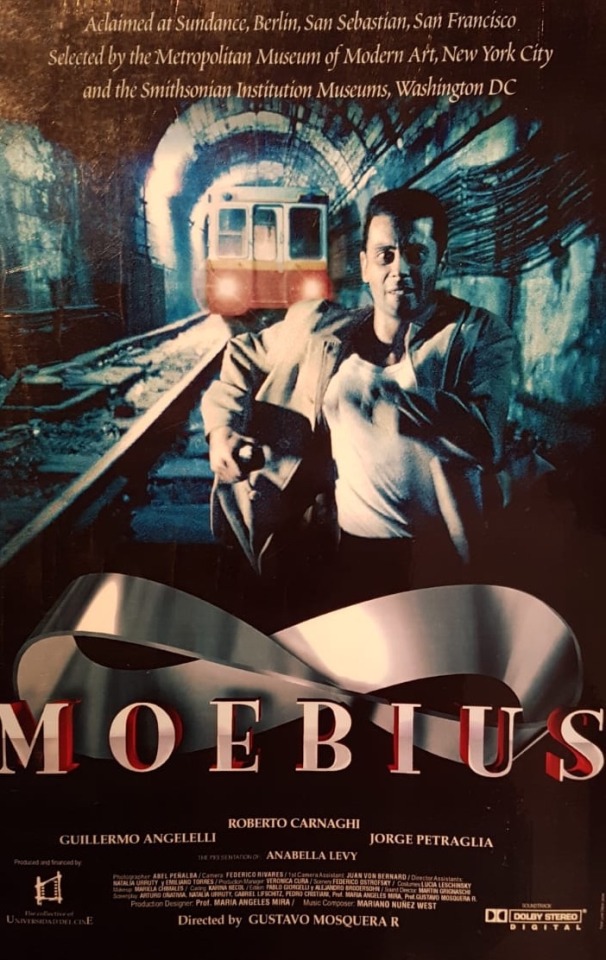
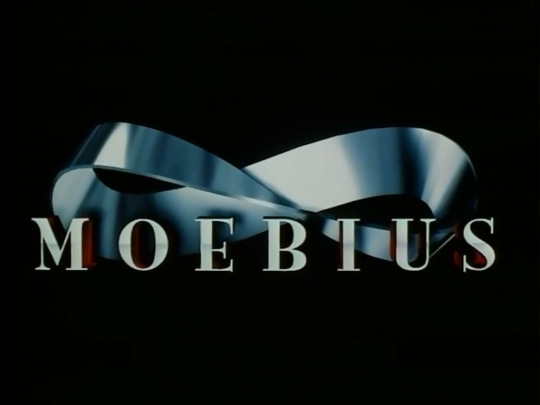
CALIFICACIÓN PERSONAL: 5 / 10
Título Original: Moebius
Año: 1996
Duración: 88 min
País: Argentina
Director: Gustavo Mosquera R.
Guion: Pedro Cristiani, Gabriel Lifschitz, Arturo Onatavia, Natalia Urruty
Música: Mariano Núñez West
Fotografía: Abel Peñalba
Reparto: Guillermo Angelelli, Roberto Carnaghi, Anabella Levy, Jorge Petraglia, Martín Adjemián, Miguel Ángel Paludi, Fernando Llosa, Daniel Dibiase
Productora: Universidad del Cine. Distribuidora: Sherlock Media S.L.
Género: Mistery; Sci-Fi, Thriller
https://www.imdb.com/title/tt0117069/
TRAILER:
youtube
0 notes